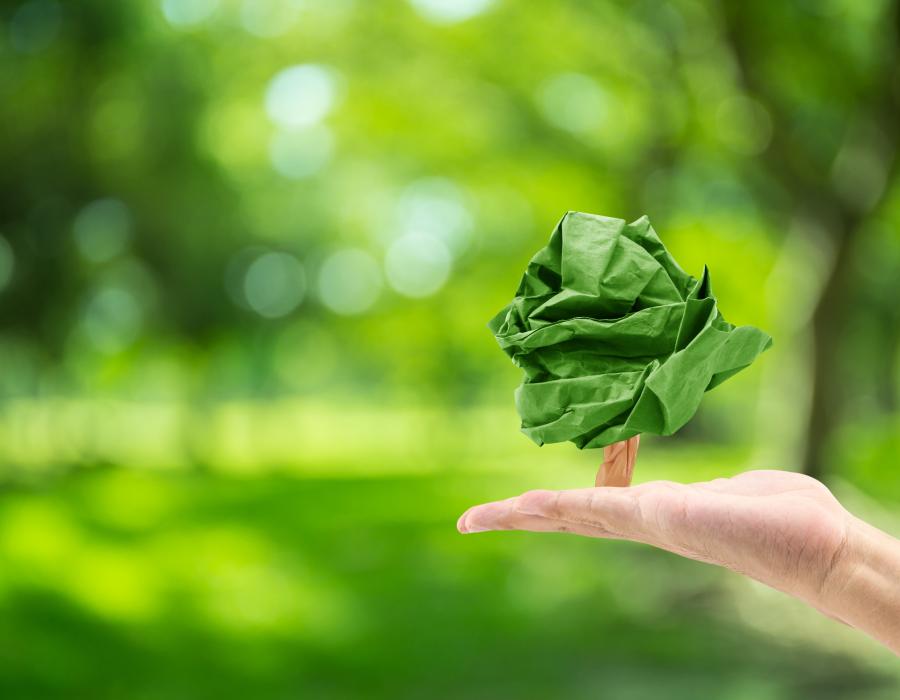The planet’s seas and oceans swallow up to 12 million tonnes of refuse a year, including 800 kg of plastic a day, which may take hundreds of years to disappear and translates into between 5 and 50 billion plastic fragments, according to data by Greenpeace. In view of these very high figures, compounded by the deaths of animals through the intake of this material and the existence of plastic islands in the ocean, industries that use large quantities of this material, such as the packaging trade, must seek alternatives that minimise environmental impact. This objective gives rise to the need to recover paper as an alternative to plastic in all types of packaging and packing since it is a more ecological, biodegradable and sustainable material.
The benefits of paper
Unlike plastics, paper comes from wood, a totally organic material that decomposes and is assimilated without affecting the environment. Moreover, when quality papers such as those by Guarro Casas, manufactured in an environmentally-friendly way, using renewable energies, organic pigments that do not contain heavy materials in a process that seeks to minimise its environmental impact, are used, paper becomes the option for the 21st Century.
To this end, ecodesign must become a driving force in the replacement of plastic by paper. In order to bring this concept to fruition, companies must focus on manufacturing products using more sustainable and ecological materials in order to minimise their impact on the environment throughout their life-cycle. In other words, not only taking the manufacturing process into account, but also the use made of their products and future disposal.

More paper must not be synonymous with more deforestation
The voices that speak out against paper are supported by the deforestation traditionally generated by the obtainment of cellulose. However, the increased use of this material in the production of packing and packaging need not be synonymous with felling more trees in order to get rid of plastic. Quite the opposite: the paper consumed in Spain and in the rest of the world is obtained increasingly more in plantations that are controlled for this very purpose. In fact, according to data from the World Bank’s database, the percentage of forestry area in Spain increased from 31.07% in 2005 to 36.8% in 2015.
The paper industry’s commitment is restated through the latest update of the Sustainability Report produced by the Asociación Española de Fabricantes de Pasta, Papel y Cartón [Spanish Association of Pulp, Paper and Cardboard Manufacturers] (ASPAPEL), of which Guarro Casas is a member. This document shows that 98% of the wood that was used to manufacture paper in 2016 in Spain was grown in local plantations, more specifically of pine and eucalyptus trees.
Guarro Casas is highly aware of and sensitive to these issues, which is why its papers hold the FSC certification, which accredits that the pulp comes from sustainable forests, are water-based products and contain no heavy metals. Moreover, all our materials are recycled by more than 20%, thus reducing the burden on forests. Our enterprise is totally committed to its products’ life cycles, both in the source of the raw materials and in the destination of the waste generated, which is given a second lease of life.
